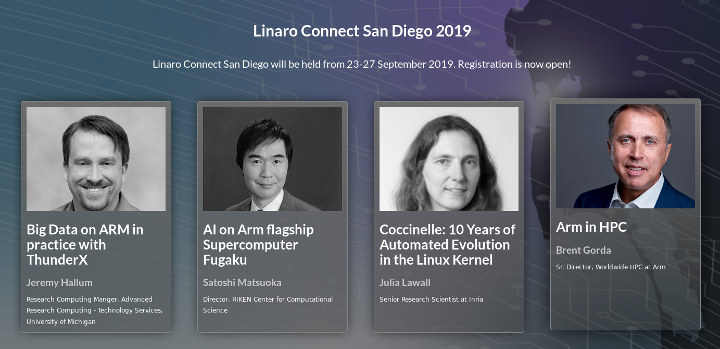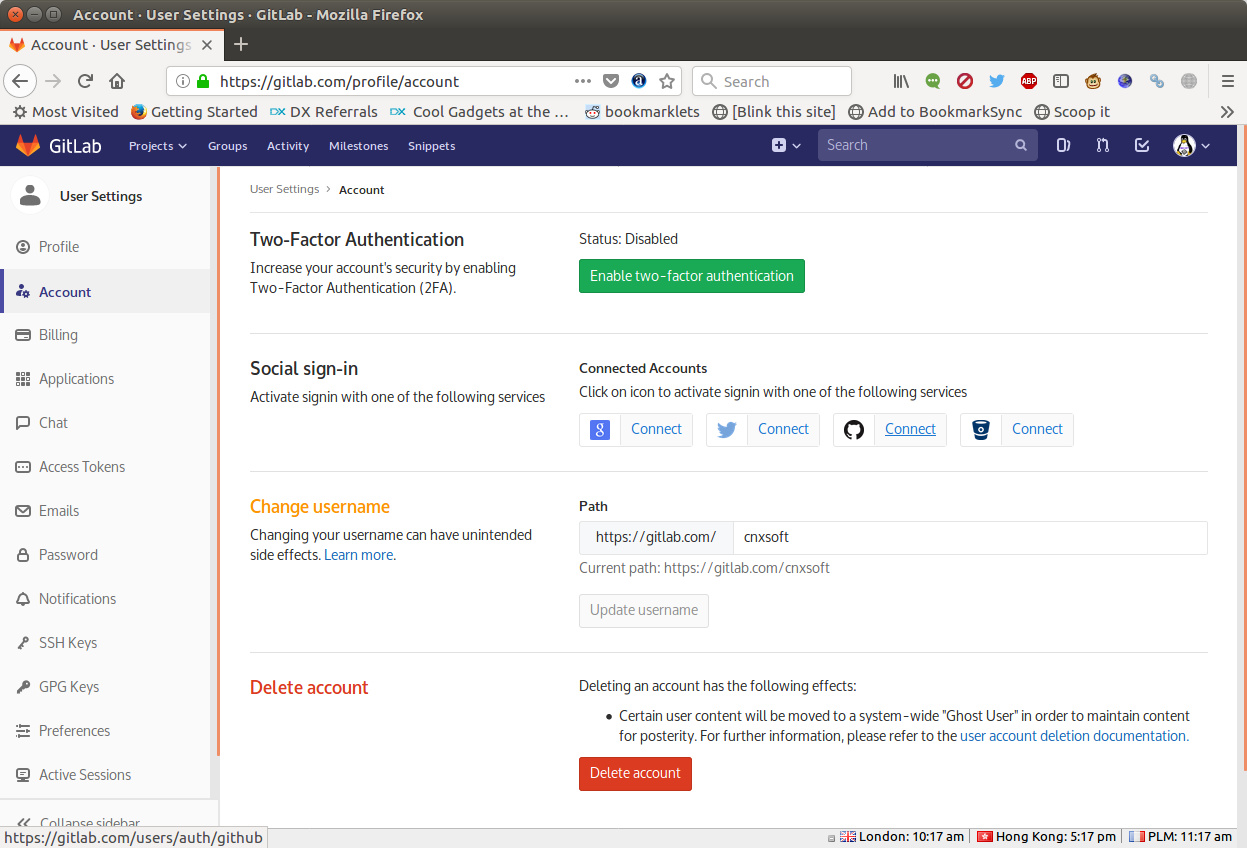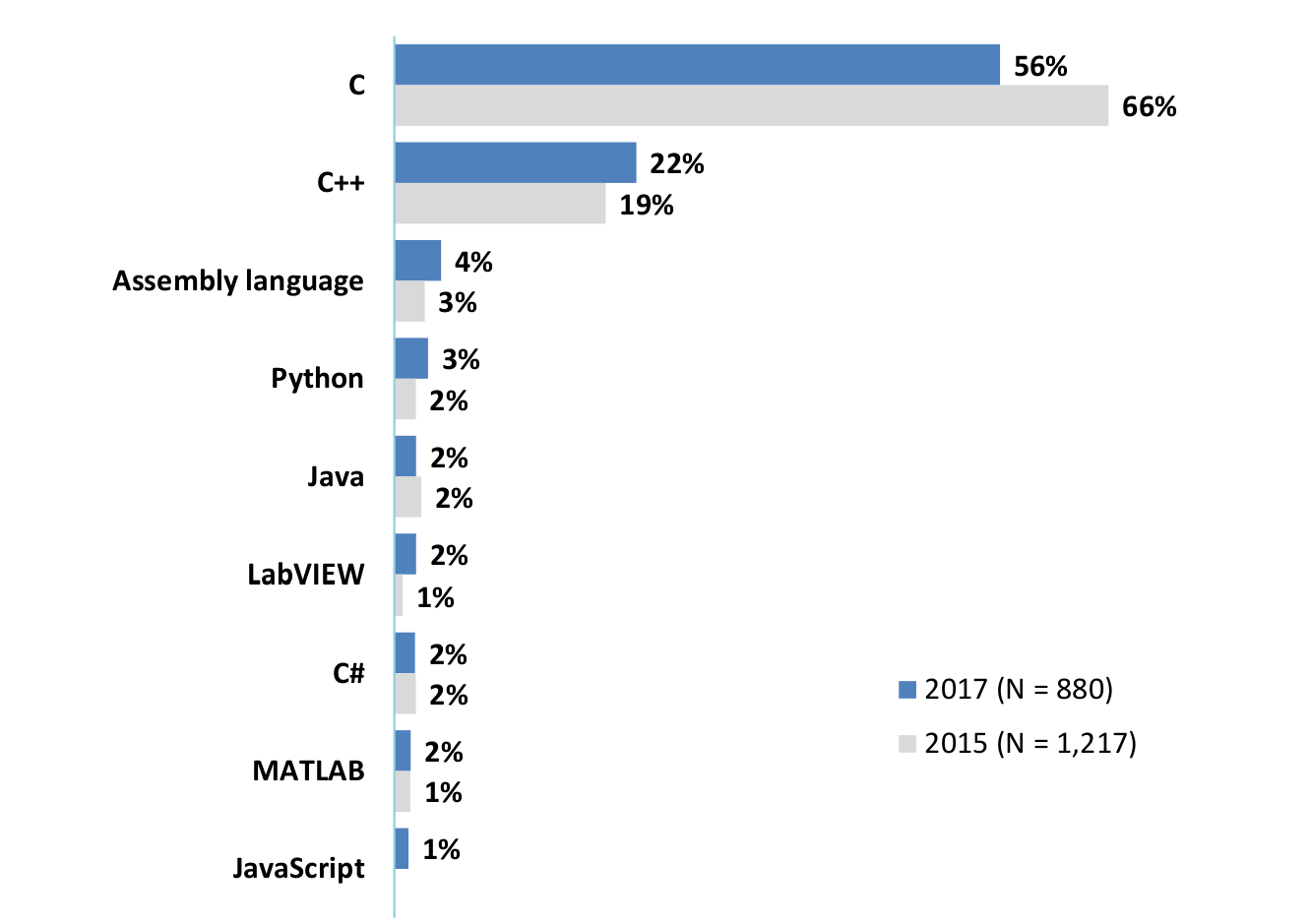Linaro has recently released the full schedule of Linaro Connect San Diego 2019 that will take place on September 23-27. Even if you can’t attend, it’s always interested to check out the schedule to find out what interesting work is done on Arm Linux, Zephyr OS, and so on. So I’ve created my own virtual schedule with some of the most relevant and interesting sessions of the five-day event. Monday, September 23 14:00 – 14:25 – SAN19-101 Thermal Governors: How to pick the right one by Keerthy Jagadeesh, Software Engineer, Texas Instruments With higher Gigahertz and multiple cores packed in a SoC the need for thermal management for Arm based SoCs gets more and more critical. Thermal governors that define the policy for thermal management play a pivotal role in ensuring thermal safety of the device. Choosing the right one ensures the device performs optimally with in the thermal budget. […]
How to Migrate from Github to Gitlab
Github is by far the most popular web-based hosting service for version control using Git, but it’s not the only option as Gitlab and Bitbucket offer alternatives. If for whatever reasons, you feel the need to migrate from Github to another service, it’s actually quite easy, and I’ve tried it with Gitlab, which offers a very easy solution to import your code repositories from Github. First, you’ll need to sign-in to Gitlab. That part does not need explanation. The next step is to go to Settings->Account, and in the Social Sign-in section, connect Gitlab to your Github account. After logging in to your Github account, youl should be set. Now click on the + icon on the op of the web page, and select New Project. Click on the Import project tab, and import project from Github. You’ll be asked to input your Github password again, and be brouhgt to […]
Aspencore 2017 Embedded Markets Study – Programming Languages, Operating Systems, MCU Vendors, and More
Aspencore media group asked readers of their EE Times and Embedded.com websites to fill out an online survey about their embedded system projects. They got 1,234 respondents mostly from North America (56.3%), followed by Europe (25.2%), and Asia (10.6%). This resulted in a 102-page market study which you can download here. I’ve extracted a few slides to have a look at some of the trends. C language is still the most used language in embedded systems, but other languages like C++, Python and even assembly language are gaining traction. Operating system is more spread with Linux being the most used via Embedded Linux distributions, Debian, and Ubuntu. FreeRTOS comes in second place, while Android registers fourth with 13%. Git has finally supplanted Subversion in 2017, with all other version control software losing ground. Switching to some hardware slides, 44% used a development board to start their embedded design with ST […]
LinuxCon Europe 2013 Schedule – Web Technologies, Debugging Techniques, Wayland, and More
I’ve just received an email from the Linux Foundation saying the schedule for LinuxCon and CloudOpen Europe 2013 had been made available. The conference will take place for 3 days (October 21-23, 2013) in the Edinburgh International Conference Center, Edinburgh, United Kingdom. There will be over 100 conference sessions, and several co-located events including: Automotive Linux Summit, the Embedded Linux Conference, Gluster Workshop, KVM Forum, Tizen Summit, Xen Project Developer Summit. As I’ve recently done with LinuxCon North America 2013 and ARM TechCon 2013, I’ll make a virtual schedule with selected developer sessions using the event’s schedule builder. You may find out several sessions will also be given in LinuxCon North America. Monday – 21st of October 11:00 – 11:50 – Bluetooth Smart Devices and Low Energy Support on Linux by João Paulo Rechi Vita, INdT This presentation will cover a brief introduction on how the Bluetooth Low Energy technology […]
Tizen 2.0 SDK and Source Code (Magnolia) Release
Tizen developers have just announced Tizen 2.0 source code and SDK release. This release includes many new features and improvements over Tizen 1.0 released in April. The highlights of this release include: Enhanced Web framework that provides state-of-the-art HTML5/W3C API support Web UI framework, including full-screen and multi-window support Additional Tizen device APIs, such as Bluetooth and NFC support, and access to the device’s calendar, call history, and messaging subsystems Web Runtime framework supporting new configuration elements for specifying the required features and privileges, and providing the basic runtime environment for NPRuntime plugins Native framework supporting full-featured application development and providing a variety of features such as background applications, IP Push, and TTS (Text-To-Speech) Core and native reference applications including Calendar, Contacts, Gallery, Phone, Settings, and Video Player Enhanced Web IDE providing WYSIWYG design environment, Chrome-based JavaScript inspector, and JavaScript log viewer Native IDE providing a project wizard, WYSIWYG design […]
BoFs: Developer Tools and Methods: Tips & Tricks – ELCE 2012
Tim Bird, senior staff software engineer at Sony Network Entertainment, hosts a BoF session about tools & methods for embedded Linux developers at ELCE 2012. Abstract: In this Birds-of-a-Feather-session, Tim will share some of his favorite tips for developing embedded Linux software. This will include tips for using ‘git’, how he does multi-platform development, and tips for other tools that other developers might find useful. Prior to the event, Tim will do a survey and solicit ideas from other developers as well. Please come to this BoF prepared to share your own productivity tips for embedded Linux development. Tim talks is divided into the following key points: Git tips – How to finds info about commits (git log, git show), use aliases (e.g. for colored output), find a commit that caused problem (git bisect), and more Patch management – quilt patch managing tool, diffinfo, and splitpatch (to break patches apart) […]
Importing Source Code to Github
Github is a hosting service for software development projects using the Git revision control system. GitHub offers free accounts for open source projects (public repositories) and commercial plans for private repositories. I’ve been using github for a while to clone source code, but I had never imported existing source code to github. Here are the steps to follow: If you don’t have an account yet, sign-up for github. Setup github for Linux, Windows or Mac OS X. Create a repository as shown as explained here. You should now have a URL in github, something like [email protected]:user/repo_name.git, which we’ll use below. Go to the directory with your existing source code and create a local repo:
|
1 2 3 |
git init git add . git commit -m "Initial commit" |
Finally, type the commands below to add your code to your new repository:
|
1 2 3 |
git remote add somename git@github.com:user/repo_name.git git pull git@github.com:user/repo_name.git git push somename master |
That’s it, anybody should now be able to clone you code as follows:
|
1 |
git clone git://github.com/user/repo_name.git |
NB: If your existing source code (or […]
Adding a Project to Gitorious with a Windows Computer
If you are developing software in Windows XP, Windows Vista or Windows 7, here are the steps to follow to push your project to Gitorious. Register and create a new project on Gitorious, if you haven’t done already. Install msysGit to have git on your Windows machine Click on “Git Bash” to start the command line Generate the SSH Key with “ssh-keygen -t rsa” and press ‘Return’ in every question. Go to your Gitorious dashboard, click on “Manage SSH Keys” then “Add SSH Key“, copy the content of “cat ~/.ssh/id_rsa.pub” in Gitorious and click save Then go to your local project directory and follow the “getting started instructions” given in Gitorious, which should look like: git config –global user.name “Your Name” git config –global user.email “[email protected]” git checkout master git remote add origin [email protected]:your-project/your-project.git git push origin master Then wait until the code is pushed to the Gitorious server. If […]







